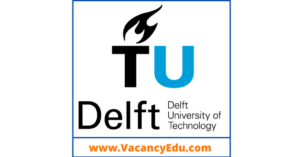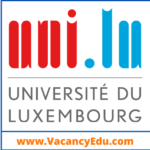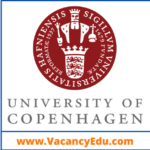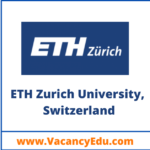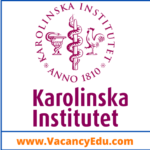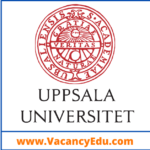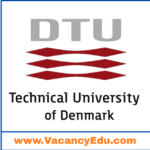Delft University of Technology (TU Delft), Netherlands invites online Application for number of Fully Funded PhD Degree at various Departments. We are providing a list of Fully Funded PhD Programs available at Delft University of Technology (TU Delft), Netherlands.
Eligible candidate may Apply as soon as possible.
(01) PhD Degree – Fully Funded
PhD position summary/title: PhD Position Reliable AI Accelerator Design in MSCA Doctoral Network TIRAMISU
While being an integral part of the team, you will work on the following:
- Identify the reliability failure mechanisms and non-ideality issues in various of AI accelerators, such as emerging memory-based CIM, or spiking NNs;
- Develop reliability solutions to address the impact of non-ideality issues.
- Develop fault-tolerance and self-healing mechanisms to guarantee reliable system operation in the presence of faults and defects.
- Develop design time and runtime configurable solutions for graceful degradation.
- Integrate and validate the developed solutions in edge AI chip prototypes.
Deadline : 2 May 2025
(02) PhD Degree – Fully Funded
PhD position summary/title: PhD Position Full-Custom Digital ASIC Design for Edge AI Computing
Edge AI computing is set to transform technology’s role in humanity through real-time AI in resource-constrained settings. As a PhD researcher, you’ll pioneer full-custom digital ASIC designs for real-time inference of advanced neural networks, enabling speech enhancement, speech-to-text, text-to-speech, and large language models (LLMs). These will revolutionize healthcare, like next-gen hearing aids and wearable diagnostics, and extend to IoT, enhancing quality of life. Traditional von Neumann architecture-based computing struggles to meet the stringent energy efficiency requirement. Your work will bridge this gap, delivering sustainable solutions with deep societal impact, from aiding the hearing-impaired to smarter IoT systems.
As a PhD researcher, you will develop advanced methodologies for full-custom digital ASIC design targeting edge AI computing applications. Your research will focus on novel digital circuit architectures optimized for digital in-memory computing, with applications spanning healthcare technologies, large language models, the Internet of Things (IoT), and other resource-constrained edge scenarios. You will explore design strategies, implement innovative architectures, and validate these ASIC designs through targeted application-driven case studies. Collaboration with academic and industry partners will provide opportunities to present your research at leading conferences and publish findings in top-tier journals.
Deadline : 25 Apr 2025
View All Fully Funded PhD Positions Click Here
(03) PhD Degree – Fully Funded
PhD position summary/title: PhD Position Algorithm-Hardware Co-Design for AI-Enhanced Transceivers
In an increasingly connected world, wireless transceivers are critical components enabling seamless communication between digital devices. However, traditional designs face challenges related to technology scaling, power efficiency, and system imperfections. This project aims to revolutionize transceiver design through innovative machine learning techniques, transitioning from conventional methods toward AI-enhanced architectures. Joining this project offers an opportunity to advance state-of-the-art AI-based solutions with broad applications in telecommunications, automotive, and healthcare sectors.
Your research will involve developing AI algorithms to calibrate system imperfections, such as power amplifier linearization for enhanced energy efficiency and signal quality, or self-interference cancellation in receivers. You’ll investigate suitable neural network architectures integrating domain-specific knowledge, analyze the cost-effectiveness of AI-based solutions compared to classical methods, and explore how environmental factors like temperature and voltage variations impact performance. Additionally, you will design and implement digital integrated circuits to efficiently execute these algorithms.
This structured four-year PhD project will begin with algorithm and signal processing development, followed by hardware implementation, benchmarking, and system feasibility studies. Early stages will emphasize algorithmic innovation, transitioning in later phases to efficient digital hardware implementation. Your research, supervised by Dr. Chang Gao (TU Delft) and Dr. R. van Veldhoven (NXP Semiconductors), will bridge academic excellence and industry relevance.
Deadline : 25 Apr 2025
(04) PhD Degree – Fully Funded
PhD position summary/title: PhD Position AI/ML Algorithms for Next Generation Transportation Systems
As a PhD researcher, you’ll contribute to algorithmic innovations, utilizing and extending AI/ML tools alongside cutting-edge optimization methods to create robust and scalable solutions. Your work will be grounded in real-world use cases and evaluated in representative scenarios, in close collaboration with scientists from Amazon Science, EU Logistics.
As a PhD researcher in Project Hermes, you will:
- Develop advanced optimization models for transportation networks, considering real-world constraints such as capacity, connectivity, and resource management.
- Design and implement scalable AI/ML algorithms, including deep learning, reinforcement learning, Bayesian methods, and online convex optimization.
- Collaborate closely with Amazon scientists on real-world datasets and evaluate your algorithms in representative scenarios.
- Contribute to a growing research team with opportunities for interdisciplinary collaboration and visibility at leading conferences.
Deadline : 18 May 2025
(05) PhD Degree – Fully Funded
PhD position summary/title: PhD Position Nanomechanical Sensors and Integrated Photonics
Micromechanical sensors are all around us, and play an increasing role in emerging trends like automization and artificial intelligence. In particular reducing the size and power consumption, while increasing sensitivity and realizing new sensing modalities is important. For that reason in this project we aim to set the step from micro to nanofabrication. We will realize nanomechanical sensors with integrated photonics for readout. Moreover we will use 2D materials for their high flexibility and unique sensitivity to light, and small forces. The project will initically target multiple sensing directions including (ultra)sound, light, temperature, gas and biosensing, while later focusing on the most promising directions. Within this project, you will design and build an integrated nanomechanical photonics sensing system and test it for sensing. The project is a international collaboration with Southampton University in the UK and Sabanci University in Turkye.
Deadline : 30 Apr 2025
Polite Follow-Up Email to Professor : When and How You should Write
Click here to know “How to write a Postdoc Job Application or Email”
(06) PhD Degree – Fully Funded
PhD position summary/title: PhD Position Strategies and Action Plans to Accelerate the Conversion of Offices into Social Housing
Across Europe, thousands of office buildings remain underutilised or vacant while the demand for affordable and social housing continues to rise. Converting these spaces into housing can significantly contribute to circular urban transformation, reducing material waste, limiting carbon emissions, and extending the lifespan of existing structures. However, such conversions face multiple barriers—economic, regulatory, technical, and social—that slow down their adoption. These barriers often emerge from misaligned incentives, fragmented decision-making, and rigid regulatory frameworks that prioritise new construction over reuse.
Despite growing interest in circular strategies, real estate developers, municipalities, and affordable housing providers still lack structured approaches and decision-support frameworks that can guide them in assessing the feasibility of office-to-housing conversions. Key challenges include determining which buildings are suitable for conversion, navigating legal and financial constraints, and integrating material reuse into construction. Without clear and feasible strategies, many promising projects stall before implementation, and conversion remains the exception rather than the norm.
The Circular Building Convert project seeks to address these challenges by developing joint strategies and action plans that support the large-scale adoption of office-to-housing conversions. This includes decision-support frameworks, policy recommendations, and tools that empower local authorities, developers, and housing associations to make informed choices about conversion projects.
Deadline : 30 Apr 2025
(07) PhD Degree – Fully Funded
PhD position summary/title: PhD Position Market Adoption of Consumer Flexibility in the Energy Transition
Decentral flexibility is pivotal to the energy transition. Numerous companies, start-ups, pilot projects, and not-for-profit organizations offer decentral flexibility solutions to integrate renewable energies, provide storage capacity, balancing power and resilience for electricity grids. Decentral flexibility designs include, among others, peer-to-peer energy trading, flexibility aggregation of home batteries, heat pumps, and electric vehicles, as well as energy communities. These designs represent different pathways to achieving decentralized flexibility, each offering distinct benefits. While some of these designs have proved successful, others have not.
This PhD project investigates the systemic, business, behavioural and policy factors that that enable or inhibit the market adoption of decentral flexibility designs in European energy markets. As the selected PhD candidate, you will:
- Assess the current trends in the market of decentral flexibility solutions.
- Develop a System Dynamics model, and conduct simulation-based assessment of whether a convergence towards certain designs can be expected and what factors lead to a tipping in the diffusion.
- Conduct empirical analysis of consumer and provider preferences for decentral flexibility designs.
Deadline : 25 May 2025
(08) PhD Degree – Fully Funded
PhD position summary/title: PhD Researcher in Broadband CMOS Image Sensor Group
Broadband CMOS image sensors, capable of detecting across the visible and infrared spectrum, hold immense potential for precision metrology and other advanced applications. This project focuses on implementing a broadband image sensor as a technology demonstrator for semiconductor metrology applications.
Deadline : 4 May 2025
Click here to know “How to Write an Effective Cover Letter”
(09) PhD Degree – Fully Funded
PhD position summary/title: PhD Position Urban Water Balance Under Drought Conditions
As droughts become more frequent, many Dutch municipalities struggle to adapt their urban water management strategies. This leads to financial, ecological, and social consequences. A lack of understanding of the urban water balance before and during drought, the impact of evaporation, and unclear responsibilities hinder the transition to a climate-resilient urban environment.
We are looking for a PhD candidate to contribute to expanding this knowledge base. Your research will focus on:
• Setting up and maintaining monitoring networks to quantify urban water fluxes, with a focus on urban green infrastructure.
• Conducting data analysis to better understand water fluxes and evaporation.
• Conceptualizing and modeling the urban water balance before and during drought conditions.
You will closely collaborate with other project members and stakeholders within the Thirsty Cities project. This project aims to develop knowledge, tools, and strategies for a climate-proof and water-sensitive built environment.
Deadline : 1 Jun 2025
(10) PhD Degree – Fully Funded
PhD position summary/title: PhD Position Electronic Packaging
We invite applications for a fully funded PhD position in Electronic Packaging. This project aims to address critical challenges in miniaturization, designing, thermal management, and reliability of electronic systems for high-performance applications. The research will focus on developing innovative packaging materials, designs, and processes to enable next-generation electronic pacakges and moudules.
Deadline : 27 Apr 2025
Connect with Us for Latest Job updates
(11) PhD Degree – Fully Funded
PhD position summary/title: PhD Position Multi-scale Modelling of Electrochemical Conversion of CO2 to Ethylene
In this PhD project, you will develop models at different scales to address key research questions related to transport and reaction phenomena happening in an electrochemical cell used to convert CO2 to ethylene.
Electrochemical conversion of CO2 to ethylene can be the game-changer for the chemical industry to move away from fossil sources. However, this technology is not yet ready for industrial applications and process performance needs to be improved to make it cost-competitive. Modelling can guide novel cell designs that are required to achieve the necessary performance.
In this project, different numerical techniques will be used to bridge different scales. Transport modelling (and possibly molecular dynamics) will be performed to understand phenomena close to the catalyst layer in a gas diffusion electrode. Multi-physics continuum modelling (using COMSOL) will be used to simulate an entire electrochemical cell.
Deadline : 18 May 2025
Polite Follow-Up Email to Professor : When and How You should Write
(12) PhD Degree – Fully Funded
PhD position summary/title: PhD Position Data Driven Ship Design
As we speak, the entire world fleet and the environmental conditions they are operating in are continuously monitored by AIS transceivers, (onboard) sensors, and satellites. The main characteristics of these vessels can be retrieved from shipping registers, databases, and classification societies. More data about ships is readily available now than ever before. Unfortunately, naval architects rarely use this data to propose modifications for existing vessels or when designing new ones. This is because it is not always clear how data from existing vessels can be used to design the vessel of the future.
The objective of this research is to increase the accuracy and to speed up design performance estimation methods. This will reduce the time to market and lead to better ship designs performance estimation in realistic environmental conditions. The means to realize these goals involve analyzing static, environmental, and operational ship data and use this data to train novel machine learning algorithms that replace existing empirical ship performance estimators. Better estimators will enable naval architects to make informed and realistic decisions in the preliminary ship design stage for newbuilds that must operate on clean energy or when proposing retrofits of existing vessels.
In short, this PhD project named “Data-Driven Ship Design”, Static, Operational, Environmental, and Sensor data will be combined and analysed to provide insights into:
- Performance estimations of ship design alternatives,
- Realistic operational profiles,
- Endurance and range of designs, and
- Environmental scenarios in which vessels operate.
Deadline : 25 May 2025
(13) PhD Degree – Fully Funded
PhD position summary/title: PhD Position Embedded Active Inference for Autonomous Robots
As robots become more autonomous, the need for efficient and scalable decision-making algorithms grows. Active inference is a promising framework that unifies perception, action, and learning under a principled probabilistic model. This PhD project explores how to embed active inference into resource-constrained devices to enable responsive, adaptive manipulation in robotic systems.
The project focuses on designing robust latent spaces for predictive models, leveraging encoder-decoder and attention-based architectures for scalability, and compressing model representations through hierarchical structures—all while optimizing for real-time performance on embedded hardware.
You’ll be working at TU Delft in a collaborative, interdisciplinary environment, co-supervised by leading experts from both academia and industry. The project includes secondments at innovative partner institutions like XOsight, where you’ll apply and validate your models on real-world robotics platforms.
Deadline : 4 May 2025
(14) PhD Degree – Fully Funded
PhD position summary/title: PhD Position in Probabilty Theory and Mathematical Analysis
This vacancy comprises two PhD positions, each emphasizing a different mathematical direction:
Position 1: Finite-Dimensional Curved Context
This project will focus on the theoretical development of the Hamilton–Jacobi equation in curved spaces, drawing upon techniques from differential geometry. The candidate will explore the role of curvature in dynamic optimization problems and analyze how stochastic control theory extends to non-Euclidean settings. Methods from (sub)-Riemannian geometry, geometric analysis, and PDE theory will be essential.
Position 2: Infinite-Dimensional Context in Optimal Transport
This project will extend the theory to infinite-dimensional spaces within the framework of optimal transport, the theory of how to best move “mass”. The candidate will explore how recent developments in this field can be applied to the study of Hamilton–Jacobi equations. This direction is highly relevant for applications in statistical physics, stochastic processes, and large-scale systems where transport and diffusion play a key role.
Deadline : 27 Apr 2025
(15) PhD Degree – Fully Funded
PhD position summary/title: PhD student
We are looking for outstanding experimentalists that are eager to participate in our research. The group aims at research at the highest international level. Candidates that fit into this environment are invited to apply. Experience in fields such as biophysics, single-molecule techniques, synthetic cells, optical imaging, nanosciences, and molecular/cellular biology is welcomed. We foster diversity and female candidates are particularly invited to apply, since the gender balance recently declined with the departure of quite some female postdocs and students.
Deadline : 31 May 2025
(16) PhD Degree – Fully Funded
PhD position summary/title: PhD Position Theoretical Biophysics
Coronaviruses are positive, single-strand RNA viruses. The genome of Sars-CoV-2, the virus responsible for the Covid-19 pandemic, encodes four structural proteins. The focus of this theoretical protein is the nucleocapsid N-protein and its interaction with the viral genome: the N-protein plays a role both in replication and translation, but is mainly associated with packaging the genomic RNA into the future viral capsid. This goal of this project is to understand how the N-protein contributes to this packaging. The project is part of an NWO-XL grant, and will be pursued in tight collaboration with experimental colleagues.
In this biophysics PhD project, we hope to design and perform Brownian motion simulations to capture both N-protein and RNA polymer dynamics. You can direct this project more towards simulations or more towards analytic calculations as you prefer; the project will also involve some simulations or calculations using stochastic physics to connect with experiments from collaborators on our NWO-XL Team. You’ll be welcome to contribute ideas or drive the project in a direction you develop!
Deadline : 23 Apr 2025
(17) PhD Degree – Fully Funded
PhD position summary/title: PhD Position Theoretical Biophysics
Gene expression in synthetic cells is frequently less predictable than in living cells. In living cells, the genomic code, the involved proteins and the intracellular environment have evolved to allow cells to express genes precisely. In synthetic environments, DNA and RNA sequence and structure and surrounding protein environments can be engineered, and a goal of this project is to investigate theoretically what engineering choices can lead to optimal outcomes.
This project is part of the EVOLF consortium project, aimed towards building a synthetic cell. In this project, you will use statistical physics, tools from stochastic process and nonlinear dynamics in order to build models for gene expression and develop inference methods for synthetic data. The project involves close collaboration with experimental colleagues on the topic. An interest in teamwork close to experiment and a desire to develop the project in your own direction is very welcome!
Deadline : 7 May 2025
(18) PhD Degree – Fully Funded
PhD position summary/title: PhD Position on Shear Dilatancy in Concentrated Emulsions
When you twist a solid cylinder, its height spontaneously changes. This is one example of shear dilatancy, a well-known but poorly understood nonlinear effect in solid mechanics. Shear dilatancy occurs in many soft solids and complex fluids, including biopolymer gels, pastes, and foams. Yet we still cannot reliably predict the amplitude or even the sign of the effect – while most materials expand, ohters contract. The key challenge is to identify a necessary and sufficient set of physical mechanisms responsible for shear dilatancy.
Recently, experiments revealed that concentrated emulsions can display positive or negative shear dilatancy, depending on how strongly droplets attract their neighbors. This is exciting, both because systems where shear dilatancy changes sign are rare, and because attraction strength can be tuned in the laboratory. Therefore emulsions are an exciting new testbed in which to unravel the origins of shear dilatancy.
Deadline : 18 May 2025
(19) PhD Degree – Fully Funded
PhD position summary/title: PhD Position Radar Remote Sensing of Vegetation
Changes in sub-daily water content contain the fingerprint of vegetation health. They reveal how well the vegetation can respond to biotic and abiotic stress (e.g. changing temperature and vapor pressure deficit, water, fungi, insects, disease) and disturbances (e.g. fire, human activity) and how resilient it is to climate variability and extremes. This project is motivated by the ambition to develop a sub-daily satellite radar mission to observe vegetation functioning and health, and to improve our ability to predict how it will change due to climate change and human impact.
You will be part of a team of PhD candidates and post-docs who are combining ground-based experimental data, satellite data, radiative transfer modeling, vegetation modeling and data science to develop the design of this mission.
Within your PhD research, you will:
- Develop and demonstrate modeling and retrieval techniques to capture the sub-daily signature of vegetation health from sub-daily radar.
- Improve fundamental understanding of microwave interactions with vegetation.
- Translate insights gained to the exploitation of current radar satellite missions.
Deadline : 10 May 2025
How to increase Brain Power – Secrets of Brain Unlocked
(20) PhD Degree – Fully Funded
PhD position summary/title: PhD Position Urban Water Infrastructure Transitions 1
Urban water infrastructure is under increasing pressure due to rapid urbanization, densification, and climate change. Municipalities in the Netherlands are redeveloping urban areas to mitigate climate effects such as heat stress, drought, and flooding. While municipalities have developed clear and integrated visions at the policy level, practical implementation is often hindered by financial, spatial, and planning constraints.
You will focus on developing innovative strategies for urban water infrastructure transitions, helping municipalities create climate-resilient urban environments. You will develop the research strategy, which may include modelling, data analysis, surveys, serious gaming, and project evaluations.The research is part of the Urban Drainage Knowledge Programme, funded by the Dutch urban drainage sector and hosted by the Water Management Department at TU Delft’s Faculty of Civil Engineering and Geosciences.
The Urban Water Infrastructure research group conducts cutting-edge research on the management, control, and transition of urban drainage and drinking water systems, integrating both traditional (grey) and nature-based (blue-green) infrastructure solutions. As a PhD candidate, you will work closely with municipalities, water authorities, and researchers to develop practical and scientifically sound strategies for urban water resilience. Ours is an inspiring, friendly and a supportive environment, in which we collaborate closely and share ideas and knowledge. As PhD student, you will be given the opportunity to coach and supervise Master students and you will receive all the training you need to evolve to an independent researcher and scientist.
Deadline : 15 May 2025
(21) PhD Degree – Fully Funded
PhD position summary/title: PhD Position Computationally Efficient Modeling to Evaluate Energy Market Organisation
You will research the state of the art in solving large optimization problems efficiently, and extend and apply this to support policy decisions regarding energy markets, in collaboration with our academic and industry partners.
You will build upon and contribute to the TULIPA energy model, which is currently the most advanced model for energy system optimization. Together with the team at TNO you will extend its capabilities to analyze the impacts of energy policies in (imperfect) markets. For example, together with other academic partners, you will develop a model to evaluate different long- and short-term market changes in a scalable manner, and analyze selected market regulations and distortions at the distribution level, including their impact on congestion.
You will develop new algorithmic solutions and/or models to do these analyses at scale, contributing to the development of the first comprehensive tool for supporting the design of energy markets. The aim is to make this tool useful for the projects’ societal partners as well as for research and education. Your research will be published and presented at international AI, optimization, energy policy, and power systems venues.
This PhD position is part of the research project MODES (Market Organisation of the Dutch Energy System), which is funded by the Dutch Research Council within the framework of the National Research Agenda programme. The position is embedded in an interdisciplinary research team composed of researchers in engineering, economics, law and public policy from seven Dutch universities, two Universities of Applied Science, TNO, and a consortium of industrial (e.g., TenneT) and institutional partners (e.g., Ministry of Climate Policy and Green Growth).
Deadline : 18 May 2025
(22) PhD Degree – Fully Funded
PhD position summary/title: PhD Position Decarbonizing EAF Steelmaking: Nitrogen Removal Strategies
Sustainability remains a hot topic in the steel industry due to growing public awareness of climate change and increasingly stringent regulations. One of the ways to make industry greener is to develop new routes such as green hydrogen direct reduced iron (H-DRI) and electric arc furnace (EAF) route which has great potential for substantially lowering emissions in the ironmaking process. However, the use of H-DRI introduces a new set of significant challenges to EAF steelmaking operations. One of the main challenges is the nitrogen removal from liquid steel.
Nitrogen control in Electric Arc Furnace (EAF) steelmaking is essential to prevent embrittlement, improve weldability, and enhance the mechanical properties of steel. During EAF operations, nitrogen is introduced through the atmosphere, charged materials such as direct reduced iron (DRI) and scrap, and the use of nitrogen-based process gases. Effective nitrogen removal relies on optimizing process parameters, including slag composition, carbon and oxygen reactions, and inert gas stirring. The overall goal of this project is to determine the limits of nitrogen removal for the steel grades produced via the Direct Reduction Plant (DRP) – Electric Arc Furnace (EAF) route. The main deliverable will be a numerical model to minimize the nitrogen content of liquid steel based on the reaction mechanism and kinetics of nitrogen removal during the EAF process. You will contribute to the development of advanced nitrogen removal techniques, ensuring enhanced steel quality in modern EAF steelmaking. As a PhD in Steelmaking Fundamentals, you will:
- Assess the thermodynamics and kinetics of nitrogen dissolution and desorption in molten steel
- Perform lab scale high temperature and cold experiments to determine underlying reaction mechanisms and kinetics
- Identify important EAF process parameters such as the role of foamy slag, argon purging, and slag basicity.
- Develop a physicochemical model of nitrogen removal
Deadline : 18 May 2025
(23) PhD Degree – Fully Funded
PhD position summary/title: PhD Position Structural Health Monitoring of Fiber-reinforced Composite Ships
Fiber-reinforced composite (FRC) structural members offer significant potential for ships, including reduced weight, corrosion resistance, enhanced strength-to-weight ratio, optimized performance, noise and vibration reduction. These can lead to improved operational effectiveness, maintenance schemes, and crew comfort. Next to these advantages, utilization of composite materials for fast ocean-going vessels also requires addressing a number of outstanding challenges, e.g. operation under extreme loading and the effect on structural integrity. Slamming loads or greenwater loads, together referred to as (wave) impact loads, can induce heavily-stressed locations in the composite member through (often invisible) delamination, fiber breakage, matrix cracking, etc. leading to a reduced fatigue lifetime of the structure.
This project deals with an in-depth investigation of slamming loads and their effect on FRC hulls and superstructures. The study will particularly focus on the development of monitoring methodologies using onboard and/or embedded sensor systems, data-driven estimation of stress state in heavily-loaded areas due to slamming loads, and assessment of micro- and macro-damage incurred to the structure under such loading conditions that can affect the lifetime of the vessel. Collaboration with highly-recognized (industrial) partners and other PhD researchers involved in the program is envisaged.
Deadline : 4 May 2025
(24) PhD Degree – Fully Funded
PhD position summary/title: PhD Position Responsible Upscaling of Floating Solar Photovoltaic Systems
We are seeking a highly motivated and talented PhD researcher to work on an exciting project focused on:
- Rethinking FPV design through synergizing interdisciplinary knowledge
- Maximising benefits and minimise potential negative impacts of FPV on the local scale through modeling
- Embedding FPV in multifunctional landscapes for humans and nature on the national scale
- Barriers and strategies for upscaling FPV
- Maximising benefits of nature-inclusive FPV design and placement for society
The successful candidate will be part of a dynamic team of researchers within the Photovoltaic Materials and Devices (PVMD) group of the Electrical Sustainable Energy department of the TU Delft and will be closely collaborating with the Energy Transition Campus of Shell BV, located in Amsterdam.
The ideal candidate will have a background in physics, mechanical engineering, electrical engieering, or a related field with modeling/simulation/coding experience, with knowledge about sustianbel energy technologies.
Deadline : 4 May 2025
(25) PhD Degree – Fully Funded
PhD position summary/title: PhD Position AI-enhanced Computational Design for Mechanical Integration of Motion System
Motion systems are used throughout the semiconductor and high-tech industry for fast and extremely precise positioning in e.g. microscopes and chip production process. Motion system design unites structural mechanics and dynamics, electromagnetic actuation, sensing and control. To achieve optimal performance of these mechatronic systems, the AIDEAL project aims to develop a holistic AI-based design framework capable of considering all these aspects in an integrated manner. A key part of this is the mechanical integration, i.e. the design of the structure that holds everything together and provides the necessary structural stiffness and dynamic behavior. With the availability of additive manufacturing, tremendous design freedom has been unlocked, which allows for radically new high-performance structural designs. Additionally, advancements in computer vision and language modeling allow for designs from different domains and scales to transform the creativity of AI-driven generative design models. The endless possibilities and high complexity of the design task exceed the capabilities of experienced human designers. For this reason, we have already successfully developed specific computational design methods based on topology optimization to generate superior mechanical designs. This project aims to develop a new generation of these computational design tools by enhancing them with AI concepts, with the aim to accelerate the design process even further and increase the diversity and optimality of the obtained designs. This PhD project will closely interact with two other PhD researchers that focus on the electromagnetic actuation system and the control design, as well as with a consortium of high tech companies supporting the AIDEAL project. The project plan includes the joint realization of full-scale functional hardware demonstrator, for which this PhD project is responsible for the mechanical design methodology.
Deadline : 11 May 2025
(26) PhD Degree – Fully Funded
PhD position summary/title: PhD Position IDEE The Transition from Secondary Education to Higher Education
At the TU Delft, the next generation of engineers experiences a significant change as they move from secondary to higher education. In addition to obtaining technical knowledge, a smooth transition is crucial for student success. The TU Delft Teaching Academy has recognized student transition as a key theme within the Initiative on Innovation in Delft Engineering Education (IDEE).
But how do we define a good transition and student success? We believe key factors include study progress, well-being, and competency development; yet these factors are often tackled separately. This project seeks to identify factors that contribute to a successful transition and explore evidence-based practices that support it.
As a PhD researcher, you will focus on one or more of the following tasks:
1. Identifying factors influencing student success: Gather current knowledge on the factors influencing study progress, competency levels and student well-being and their mutual dependency on student transition to higher engineering education.
2. Definition of the analysis framework: Development of a framework – such as suggested above – based on study progress, competency levels and well-being, to assist analysis and comparison of the impact of interventions on the transition into engineering education.
3. Participate in the design of educational interventions to improve the transition.
You will collaborate with TU Delft staff and a Postdoctoral researcher as part of the IDEE ‘Transition’ research team.
Deadline : 4 May 2025
(27) PhD Degree – Fully Funded
PhD position summary/title: PhD Position in Cryo-CMOS Circuit Design for Quantum Sensors
In this project, you will develop the cryogenic interface for a very sensitive cryogenic magnetic sensor implemented using the SQUID (Superconducting Quantum Interference Devices) sensors developed by our partner QuantaMap. Those sensors are crucial components in a very advanced microscope able to accurately map the currents on the surface of next-generation quantum chips. In the current setup, the magnetic sensors are read out by room-temperature electronics, but the long wires from the cryogenic sensor to the room-temperature electronics are prone to the coupling of noise and interferers, thus degrading the excellent performance of the sensors. To circumvent this limitation, your research will target the invention and development of a fully integrated sensor readout operating at cryogenic temperatures as low as 1 K so that they can be operated very close to the quantum sensor. You will design the full read-out chain, comprising ultra-low-noise amplifiers exceeding state-of-the-art performance and analog-to-digital converters, all within a very strict power budget. Over the course of your PhD, you will design several prototypes of cryo-CMOS readout circuits, tape them out in advanced CMOS technologies, and characterize the resulting prototypes in our advanced cryogenic electrical characterization laboratory.
Deadline : 11 May 2025
(28) PhD Degree – Fully Funded
PhD position summary/title: PhD Position Multi-Sensor Multi-modal Machine Learning for Social & Affective Computing
Enabling machines to interpret social behaviour in real life is a major frontier of Modern Artificial Intelligence (AI). Unfortunately, there is almost no attention on developing systems to infer intentions. Those claiming to do so are labelling them by observing the future. This is problematic because they cannot detect unrealised intentions or unintended outcomes. Intention estimation is extremely challenging because inferences need to be explained with respect to situational context. This project develops a novel framework and learning approaches to learn narratives of perceived intention from multiple perspectives in in-the-wild ecologically valid social situations such as social networking events.
The successful applicants will develop automated techniques to analyse multi-sensor data (video, acceleration, audio, etc) of human social behavior with a focus on developing automated approaches to infer social intentions
Successful candidates will work in a team of 6 on the development of artificial systems that each integrate different aspects of machine learning, multimodal sensing, ubiquitous computing and social science. In addition, the successful candidates will have the opportunity to collaborate with internationally renowned researchers at the forefront of social machine perception of human cognition and behaviour modeling.
Deadline : 4 May 2025
(29) PhD Degree – Fully Funded
PhD position summary/title: PhD Position Evolutionary Robustness of Cell Polarity
We are looking for an experimentalist, with a background in (bio)physics, nanobiology or quantitative biology, who is eager to combine wetlab work with big data analysis and bioinformatics and has a keen interest in unraveling cellular resilience. We are a highly collaborative research group that likes to work on challenging and ambitious fundamental problems, that typically combine experiments with computational work. We expect the candidate to be a team-player, to have an independent and well-organized work style, to be communicative and creative, and to contribute to our open, interactive, and social lab culture.
Deadline : 15 May 2025
(30) PhD Degree – Fully Funded
PhD position summary/title: PhD Position on the Relationship between Digital Infrastructures and State Formation
Digital infrastructures – broadly understood as ranging from the material infrastructures of the internet (routers, cables, datacentres) through protocols and standards all the way to the application layer – are ubiquitous these days. They form the substrate of what is often described as “digitality”, i.e. the fact that we live digital lives, exist in digital cultures and that digital technologies have become part and parcel of everyday live (Negroponte 1995).
Traditionally, infrastructures are understood as a domain of the state, even if not exclusively so. The relationship between infrastructures and states has long been an area of research in many disciplines. States rely on infrastructures to guarantee the functioning of the state and society, and states are often the actors that bring infrastructures into existence. The specific form and implementation of infrastructures however also shape the capabilities of the state. While they certainly do not determine the state, they allow for certain modes of governance, and preclude others.
For the case of digital infrastructures, there are important differences. Even though the Internet emerged from the state-sponsored efforts of the ARPANET, digital infrastructures today are built, maintained and evolved by private economic actors. The zones established through digital infrastructures are often larger than nation states, and may well be understood as orthogonal to the national order of things. Furthermore and as evidenced by the rise of the so-called social networks, they are also beginning to re-order the social.
Deadline : 17 May 2025
(31) PhD Degree – Fully Funded
PhD position summary/title: PhD Transformative Law and Policy to Accelerate Sustainability Transitions
The PhD position is part of an interdisciplinary team of 3 PhD researchers, one post doc and two senior researchers in the NWO EXTRA-project. Your role will be to synthesize existing research on regulatory and policy innovations that contribute to sustainability transitions in the area of renewable energy, circularity and biodiversity. You will also analyze and co-design regulatory and policy innovations together with societal partners that they are trying out in their experimental environments. You wil particularly aim to gain isnights on the ways in which polic and regulatory innovations are and can be anchored in current policy and regulations.
The project ‘From EXperiment to sustainable change: TRAnsformative methodologies for Innovation and learning’ (EXTRA) seeks to overcome a persistent “pilot paradox”. In this paradox, much experimentation takes place but long-term systemic impact remains difficult. Researchers together with all sorts of change makers will synthesise existing knowledge on how to mainstream, upscale, spread, broaden and deepen developed innovations. In this PhD position you will be employed at the Multi Actor Systems Department and co-supervised by the Rotterdam School of Law.
Deadline : 11 May 2025
(32) PhD Degree – Fully Funded
PhD position summary/title: PhD Position in Design with Critical Raw Materials
The Faculty of Industrial Design Engineering at Delft University of Technology invites applications for a PhD position on developing innovative design methods aimed at addressing challenges associated with Critical Raw Materials (CRMs). CRMs are fundamental to the production of high-tech products and renewable energy technologies; however, their availability faces significant threats due to geopolitical tensions, supply scalability, and environmental concerns. Product design engineering and strategic product design play a critical role in addressing these challenges, as many solutions—such as recycling, material substitution, or extending product life cycles—are only feasible if considered from the very beginning of the design process. Furthermore, recent European policy developments, such as the European Commission’s Critical Raw Materials Act and the Ecodesign for Sustainable Products Regulation highlight the need for design approaches that reduce reliance on scarce materials and promote product longevity and recyclability.
The successful candidate will investigate and develop robust design methodologies specifically tailored to mitigate the risks and dependencies related to critical raw materials. Core strategies such as Design for Recycling, Design for Longer Lifetimes, and Design for Material Substitution will be central to the research. The candidate will both innovate and synthesize existing design approaches to establish comprehensive, practical guidelines applicable across diverse product categories and industries.
The aim of this position is twofold: to develop a design guide on product-level strategies for CRM management, while also creating actionable recommendations to materials scientists. Special attention will be given to geopolitical dynamics affecting material availability, aiming to create adaptable, resilient design solutions.
Deadline : 24 Apr 2025
(33) PhD Degree – Fully Funded
PhD position summary/title: PhD Position Controlling Cell-cell Communication with Cell Adhesion Molecules
A 4-year PhD position is available in the research group of Dimphna Meijer at the Department of Bionanoscience, Delft University of Technology, the Netherlands.
One of the key challenges in building synthetic cells is equipping them with the ability to sense their environment and communicate with other cells. In this project, you will develop and apply a universal platform to engineer modular cell adhesion molecules (CAMs) into synthetic cell membranes, enabling controlled attraction, repulsion, and downstream signaling. You will work with bio-inspired domains from neuronal CAM families and study how their molecular composition, organization, and membrane insertion impact synthetic cell communication.
Specifically, you will: (1) Determine minimal interaction domains in modular CAMs and test adhesion properties using biophysical and cell-based assays. (2) Insert CAMs into synthetic cell membranes for cryo-EM/cryo-ET imaging. (3) Investigate intracellular signaling upon extracellular input using designed cytosolic domains. State-of-the-art facilities are available in our department, including high-end light and cryo-electron microscopes, as well as advanced mammalian cell culture infrastructure.
Deadline : 1 May 2025
(34) PhD Degree – Fully Funded
PhD position summary/title: PhD – Dynamic System Rating based on Zonal Edge Intelligence and Synchrophasor Measurements
The decommissioning of fossil-fuel generation and increasing integration of power-electronics-based renewable resources, the application of HVDC, and storage devices, resulted in scenarios leading to power system oscillations with a broad frequency spectrum, decreased system strength, and low inertia. It raises important questions on how the system will deal with such a new normal that may easily lead to emergency situations resulting from overload, (under/over)voltage, and angle variations.
Electrical power systems operate close to their stability limits which can be easliy exceeded with uncontrolled line overload. Thermal conductor limit is a crucial factor that determines the network capacity. Therefore, nowadays Dynamic Line Rating technology is applied and facilitated by widespread testing dealing with sensor-based and sensor-less current-, temperature-, and/or voltage sag measurements of the loading and weather conditions.
In this project, the critical aspects will be investigated concerning the uncertainty of electricity supply resulting from the wind-, solar, and other forms of energy leading to different emergency situations. To ensure the dynamic ampacity of the lines, dynamic system rating is needed, and is beneficial for the control of optimal power flows. This will be realized by making a system of small zones and applying edge intelligence to secure the power ratings. The project will provide comprehensive insight and solutions for optimal and stable power system operation by applying synchrophasor’s monitoring, the data of which will be used for developing algorithms to reduce stability risks and increase transport capacity. The results will be validated by real-time measurements and RTDS simulations. Throughout the project, you will develop a unique skill set in power system protection, dynamic grid monitoring, and interdisciplinary research—preparing you for a successful career in academia or industry.
Apply now and become part of our international team working on the modernizing tomorrow’s electricity grids. We look forward to receiving your application!
Deadline : 27 Apr 2025
(35) PhD Degree – Fully Funded
PhD position summary/title: PhD Position Analog In-Memory AI Accelerators for Energy-Efficient Edge Computing
Deploying AI on resource-constrained platforms such as wearable and implantable devices opens exciting possibilities to improve healthcare, enhance quality of life, and contribute to more sustainable computing. Achieving this requires radically new, energy-efficient computing engines built on innovative architectures and emerging device technologies. In this aspect, Emerging computation-in-memory (CIM) architectures, particularly those using memristor-based technologies, offer a promising potential for energy-efficient AI acceleration by performing computational tasks directly within the memory. In CIM, the storage unit consists of a highly compact crossbar structure built using non-volatile, scalable, and CMOS-compatible memristor devices, such as resistive random-access memory (RRAM). The data stored in memristor devices is analog, represented as resistance states, which enables data access in the analog domain. This approach not only facilitates greater parallelism but also improves the scalability of operations, resulting in significant performance gains for data-intensive tasks.
Deadline : 2 May 2025
(36) PhD Degree – Fully Funded
PhD position summary/title: PhD Position Control and Generative AI for Human Digital Twin
The Delft Center for Systems and Control (DCSC) is looking for a PhD candidate to work on a 4-year project “Control and Generative AI for Human Digital Twin”. Controlling a digital twin of the human body with hundreds of muscles and joints to generate realistic human motion, e.g., walking, running, or jumping, is a challenging control problem. This is essential for conducting human-involved experiments in silico, significantly reducing the experimental cost in various applications, e.g., understanding human motor skills, designing rehabilitation programs, and designing assistive devices such as exoskeletons and prostheses.
Due to the complexity of human digital twin, this project will focus on developing novel control methods by exploiting reinforcement learning (RL) and generative AI. The developed approaches will be used for generating complex human motion across different populations, e.g., healthy individuals, individuals with mobility impairments, and individuals wearing assistive devices. While the primary focus of this project is on healthcare, the results will also have a profound impact on gaming, virtual reality, animation, and humanoid robotics. Experiments for collecting human motion data will be performed using a motion capture system in our Lab.
This research project allows you to gradually build your own research profile according to your interests, while remaining within the project’s goals. You will be responsible for the typical scientific research workflow: motivating the problem, identifying the main methodological shortcomings in literature, developing novel methods in RL and generative AI and novel models for human body, planning and executing experiments, and reporting findings in articles to be published at top venues. Periodic meetings, feedback, and international/national collaborations will ensure the success of your degree and the project overall.
Deadline : 11 May 2025
(37) PhD Degree – Fully Funded
PhD position summary/title: PhD Position Distributed Optimization and Control for Drone Swarms
We live in a world of interconnected networks of autonomous sensing systems, catering to diverse applications in fields of automotive, satellites, robotics and many more. There are various challenges in such large-scale distributed networks i.e., the low-cost sensing, decentralized statistical inference, distributed control and online decision making. These distributed systems will have to fuse a combination of batch, streaming and intermittently-available datasets (typically from multi-modal sensors), and make prudent inferences using minimal communication with neighboring nodes. In view of energy-efficient solutions (i.e., minimizing both communication, processing and memory resource), these mobile systems will be autonomous and will rely heavily on on-board inference.
In this project, the PhD candidate will design and implement novel joint localization and control strategies using neighborhood-based filtering. A cooperative bayesian optimization approach will be used to enable a swarm to make formations and navigate an unknown environment, based on local neighborhood information, ensuring resilience against communication link failures and information losses.
Deadline : 30 Apr 2025
About Delft University of Technology (TU Delft), Netherlands –Official Website
Delft University of Technology, also known as TU Delft, is the oldest and largest Dutch public technical university. Located in Delft, Netherlands, it is consistently ranked as one of the best universities in the Netherlands, and as of 2020 it is ranked by QS World University Rankings among the top 15 engineering and technology universities in the world.
With eight faculties and numerous research institutes, it has more than 26,000 students (undergraduate and postgraduate) and 6,000 employees (teaching, research, support and management staff).
The university was established on 8 January 1842 by William II of the Netherlands as a Royal Academy, with the primary purpose of training civil servants for work in the Dutch East Indies. The school expanded its research and education curriculum over time, becoming a polytechnic school in 1864 and an institute of technology (making it a full-fledged university) in 1905. It changed its name to Delft University of Technology in 1986.
Dutch Nobel laureates Jacobus Henricus van ‘t Hoff, Heike Kamerlingh Onnes, and Simon van der Meer have been associated with TU Delft. TU Delft is a member of several university federations, including the IDEA League, CESAER, UNITECH International and 4TU.
Disclaimer: We try to ensure that the information we post on VacancyEdu.com is accurate. However, despite our best efforts, some of the content may contain errors. You can trust us, but please conduct your own checks too.
Related Posts
- PhD Degree (20) -Fully Funded at Luxembourg, Luxembourg

- PhD Degree (23) -Fully Funded at University of Copenhagen, Denmark

- PhD Degree (31) -Fully Funded at University of Southampton, England

- PhD Degree (24 )-Fully Funded at ETH Zurich, Switzerland

- PhD Degree (13)-Fully Funded at Karolinska Institute, Sweden

- PhD Degree (11) -Fully Funded at Cranfield University, England

- PhD Degree (34) -Fully Funded at Newcastle University, England

- PhD Degree (19) -Fully Funded at Uppsala University, Sweden

- 25 PhD Degree-Fully Funded at Technical University of Denmark (DTU), Denmark


